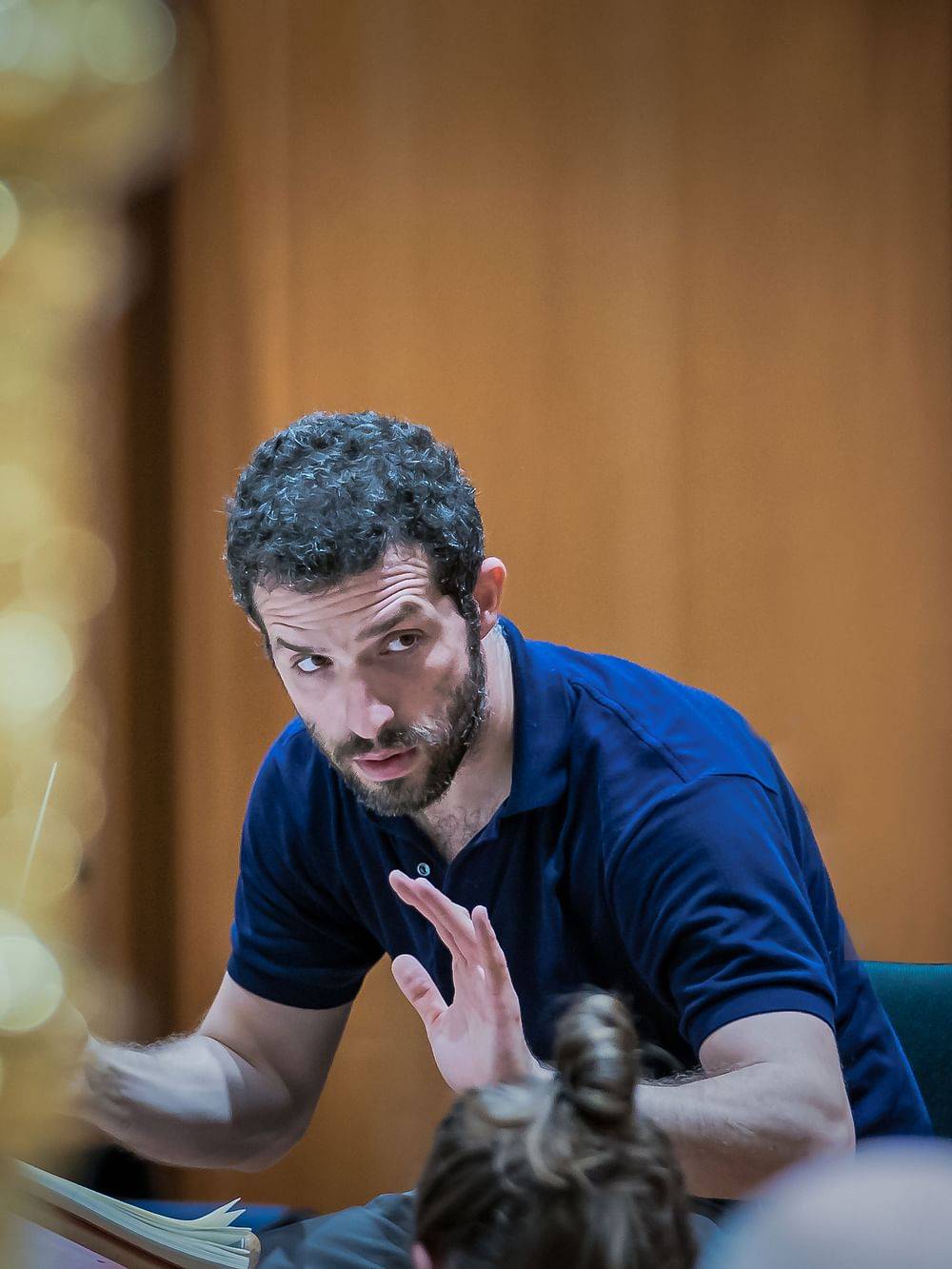Gabriel/Eva: Anett Fritsch
Uriel: Mert Süngü
Raphael/Adam: Alexander Fritze
Chorus Volksoper Wien
Choir Director: Roger Díaz-Cajamarca
Conductor: Omer Meir Wellber
Joseph Haydn's famous oratorio is conducted by music director Omer Meir Wellber. In addition to the soloists and the orchestra, the Volksoper Wien choir, conducted by Roger Díaz-Cajamarca, also plays a leading role.
During his time in London, Joseph Haydn was strongly inspired by Handel's oratorios. Here he was also offered a libretto originally intended for Handel, loosely based on John Milton's epic poem Paradise Lost. Back in Vienna, Haydn involved Gottfried van Swieten in the project. But even if Paradise Lost served as the inspiration of the libretto, it is hard to imagine a greater difference between the two texts.
Milton writes about the struggle of the fallen angels who, by corrupting man, seek to prove that creation is fundamentally flawed. The snake in paradise is a figure of Satan, through whose intervention man becomes guilty, sinful and shameful. Van Swieten and Haydn's libretto ends exactly before the snake appears.
The first five days of creation are depicted in magnificent natural images, and the Creator God is praised many times. In the last part, Adam and Eve are portayed as the ideal of a pure pair of lovers, the crowning glory of creation, entirely in the spirit of the Enlightenment.
Then finally, in the last recitative, the angel Uriel seems to have read Milton after all. Thus he gives us a glimpse of human history to come: The last four lines counterbalance the setting of chaos at the beginning of the piece. Mankind as the crown of creation may be the basic idea of the work, but it will not fare well for long.
Cast
- Conductor
- Omer Meir Wellber
- Gabriel
- Anett Fritsch
- Uriel
- Mert Süngü
- Raphael
- Alexander Fritze
- Eva
- Anett Fritsch
- Adam
- Alexander Fritze
- Chorsolo
- Angela Riefenthaler
Photos and Videos
For all those who use a screen reader, a description of the visual aspects of the performance (set design, costumes...) follows here instead of the photo gallery.
.jpg)
